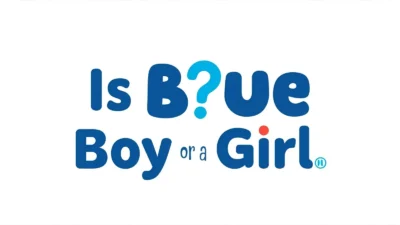Have you ever paused while writing and wondered — “Is it too much or to much?” 🤔
You’re definitely not alone! This tiny spelling confusion trips up students, writers, and even professionals who want their writing to look perfect.
Both versions might look similar, but grammatically, there’s a big difference — and understanding it is key.
In this article, we’ll break it down in a simple way with examples so you’ll never get it wrong again. If you care about clean, confident English writing, this guide is made just for you!
Too Much or To Much – Quick Answer

The correct spelling is “too much.”
- Too means “excessively” or “more than necessary.”
- To is a preposition or part of an infinitive verb.
✅ Correct: “There’s too much sugar in this tea.”
❌ Incorrect: “There’s to much sugar in this tea.”
The Origin of “Too Much”

The word “too” comes from Old English tō, meaning “in excess” or “overly.” Over time, “too” became the correct word to show excess, while “to” stayed as a preposition (e.g., “I’m going to the store”).
The spelling error “to much” is simply a typo or misunderstanding—there’s no such phrase in standard English.
British English vs American English Spelling

The spelling of “too much” is the same in both British and American English. However, certain other words may differ between the two, which can add to confusion for learners.
| Word/Phrase | British English Example | American English Example |
| Colour / Color | The sky is colourful. | The sky is colorful. |
| Centre / Center | The town centre is busy. | The town center is busy. |
| Too much / To much | Always too much | Always too much |
No matter which version of English you use, “too much” remains correct.
Which Spelling Should You Use?

Always use “too much.”
- If your audience is in the US, UK, or Commonwealth countries, the phrase is the same.
- For global communication, “too much” is universally understood.
- Never write “to much.” It’s always incorrect.
Common Mistakes with “Too Much”

Here are frequent errors learners make:
- Using “to much” instead of “too much.”
- ❌ “It’s to much noise.”
- ✅ “It’s too much noise.”
- ❌ “It’s to much noise.”
- Forgetting “too” when talking about excess.
- ❌ “It’s much work.”
- ✅ “It’s too much work.”
- ❌ “It’s much work.”
- Overusing “too much” informally.
- Overuse in casual speech: “That’s too much!”—fine in conversation but avoid in formal writing.
- Overuse in casual speech: “That’s too much!”—fine in conversation but avoid in formal writing.
“Too Much” in Everyday Examples

You’ll see “too much” everywhere:
- Emails: “There’s too much on my plate this week.”
- News: “The company faced too much competition.”
- Social Media: “I love this song too much!”
- Formal Writing: “The proposal involved too much risk.”
“Too Much” – Google Trends & Usage Data

Google Trends shows that “too much” is one of the most frequently searched English phrases. Interestingly, searches for “to much” often spike, suggesting many learners mistype it.
Top countries searching for “too much”:
- United States
- India
- United Kingdom
- Philippines
- Canada
Cudos or Kudos A Beginner Friendly English Spelling Guide for 2026
Keyword Comparison Table
| Keyword | Correct? | Meaning | Example |
| Too much | ✅ Correct | Excessive amount | “He talks too much.” |
| To much | ❌ Incorrect | No meaning in English | “He talks to much.” (Wrong) |
| Too | ✅ Correct | Excessively; also; very | “It’s too cold today.” |
| To | ✅ Correct | Preposition; part of infinitive verb | “I’m going to school.” |
FAQs
1. Is “to much” ever correct?
No, “to much” is always incorrect. The right phrase is “too much.”
2. What does “too much” mean?
It means something is excessive or more than necessary.
3. Is “too much” formal or informal?
It’s neutral. You can use it in both formal and informal writing.
4. Why do people write “to much”?
It’s often a typing error or confusion because “too” and “to” sound the same.
5. How can I remember the difference?
Think: “Too” has an extra “o” for “over” or “extra.”
6. Is “too much” used in British English?
Yes, it’s correct in both British and American English.
7. Can “too much” describe feelings?
Yes. Example: “I love her too much to hurt her feelings.”
Conclusion
The correct phrase is always “too much”—never “to much.” This common spelling mistake comes from the similarity in sound between “to” and “too,” but their meanings differ. “Too” indicates excess, while “to” functions as a preposition or part of an infinitive. Fortunately, once you understand the difference, you’ll never mix them up again.
Whether you’re writing emails, creating content, or posting online, spelling matters. Using the correct form, “too much,” shows professionalism and attention to detail. As a quick memory trick, remember that the extra “o” in “too” stands for “overly” or “excessively.”
Next time you pause at your keyboard wondering which is right, you’ll have the answer ready: “too much” is always correct.

Mark Twain is a legendary writer at lingorae.com, celebrated for his sharp wit and timeless humor.
A true master of puns, he crafts clever wordplay that entertains and delights readers.




